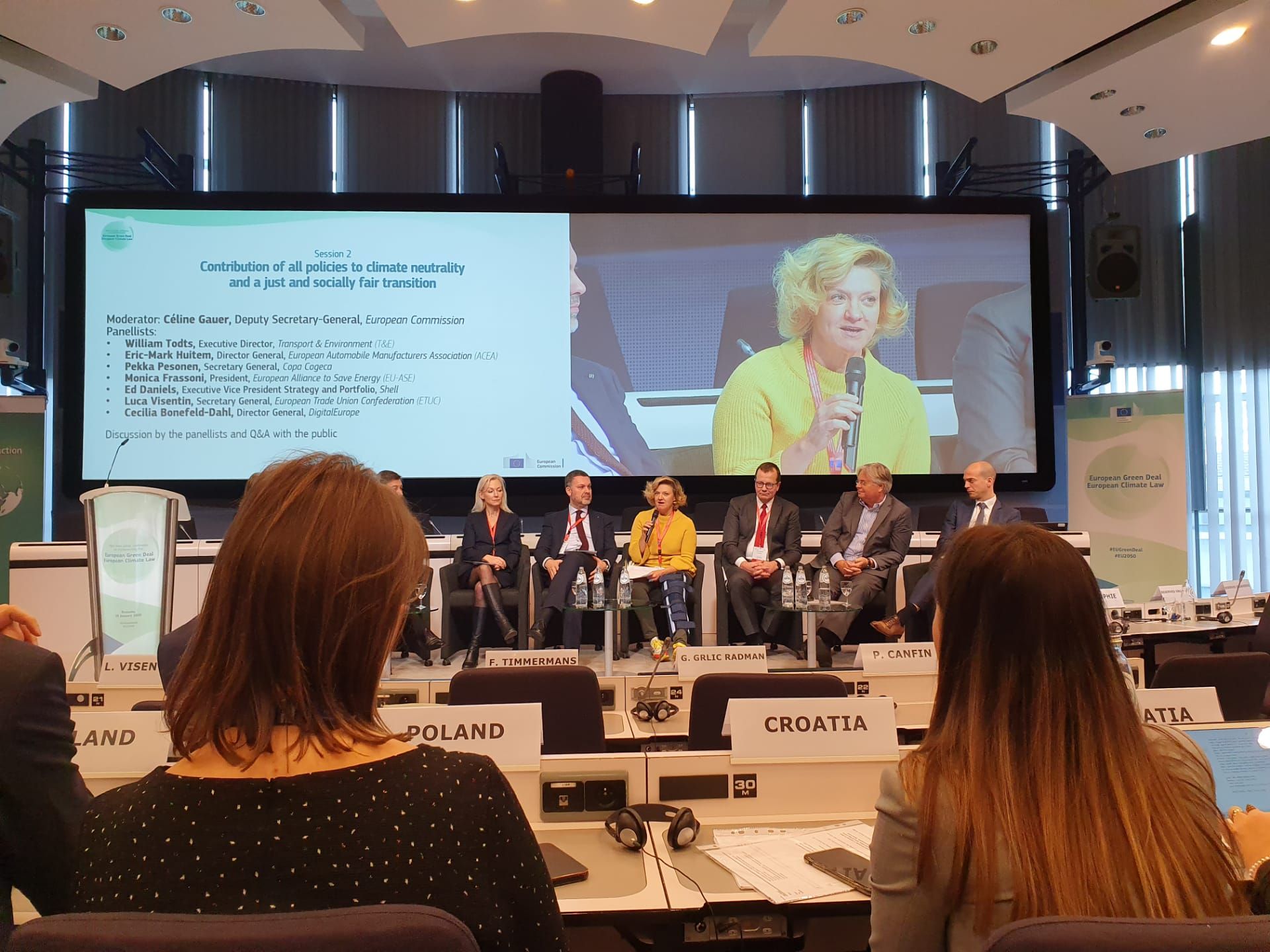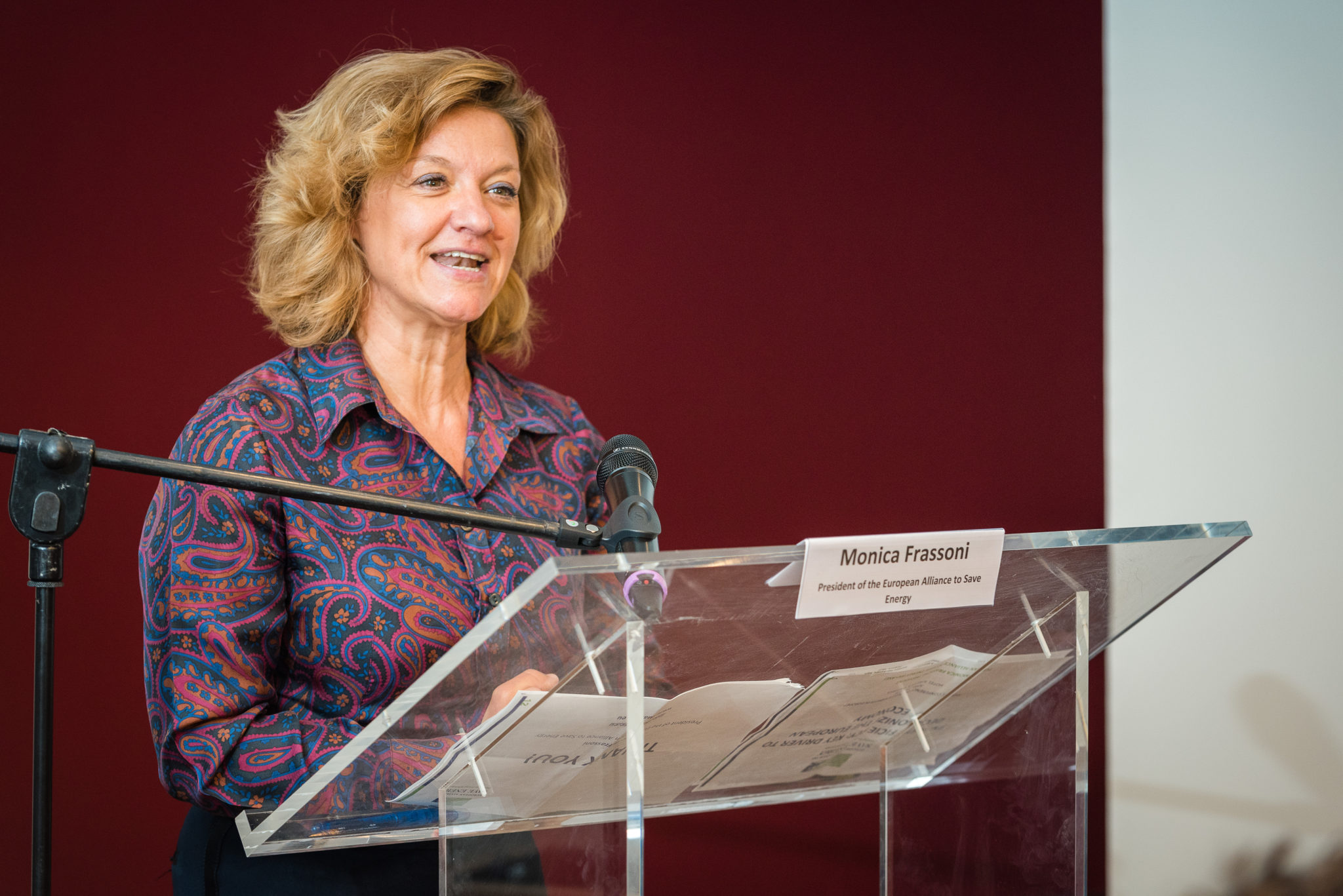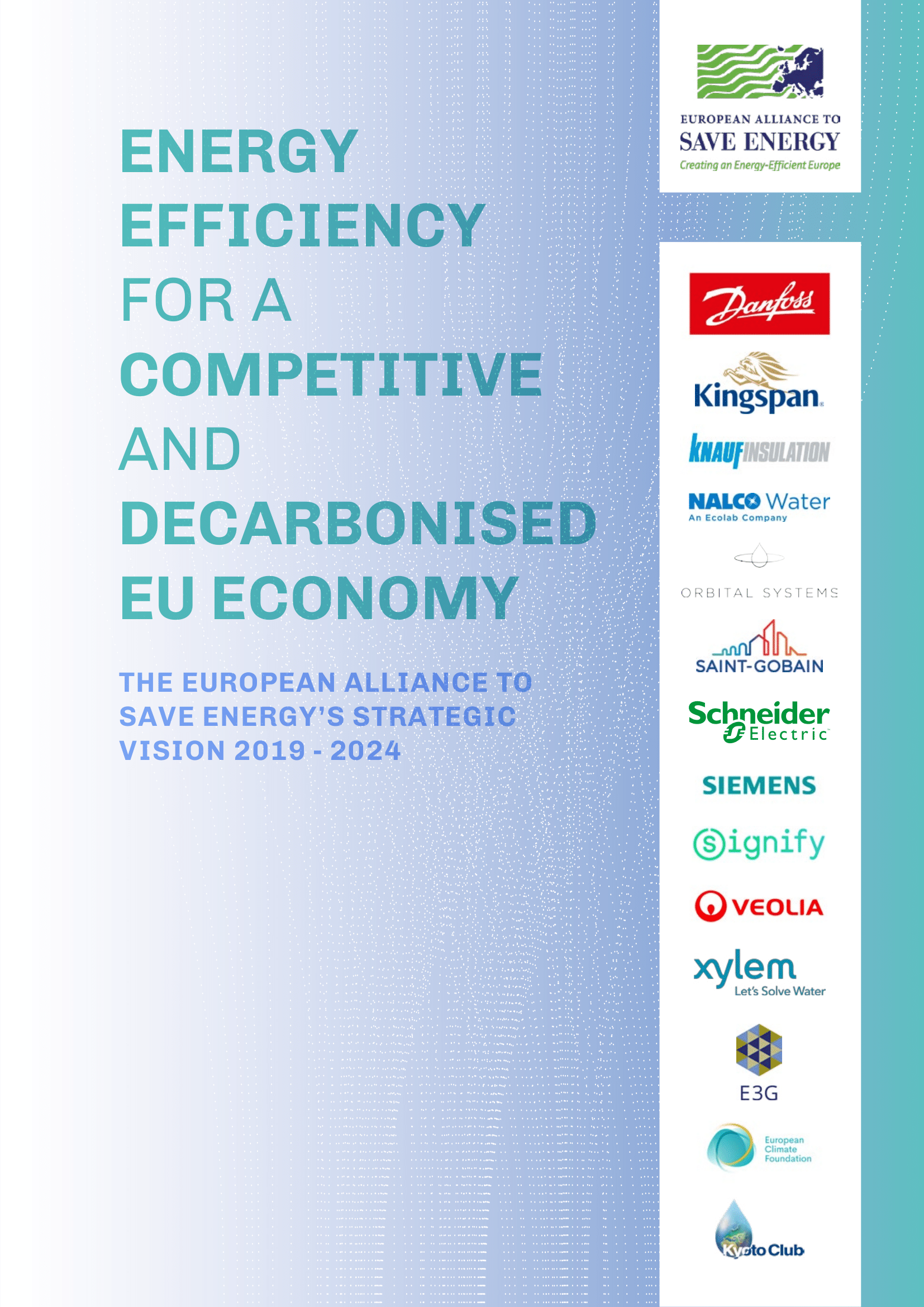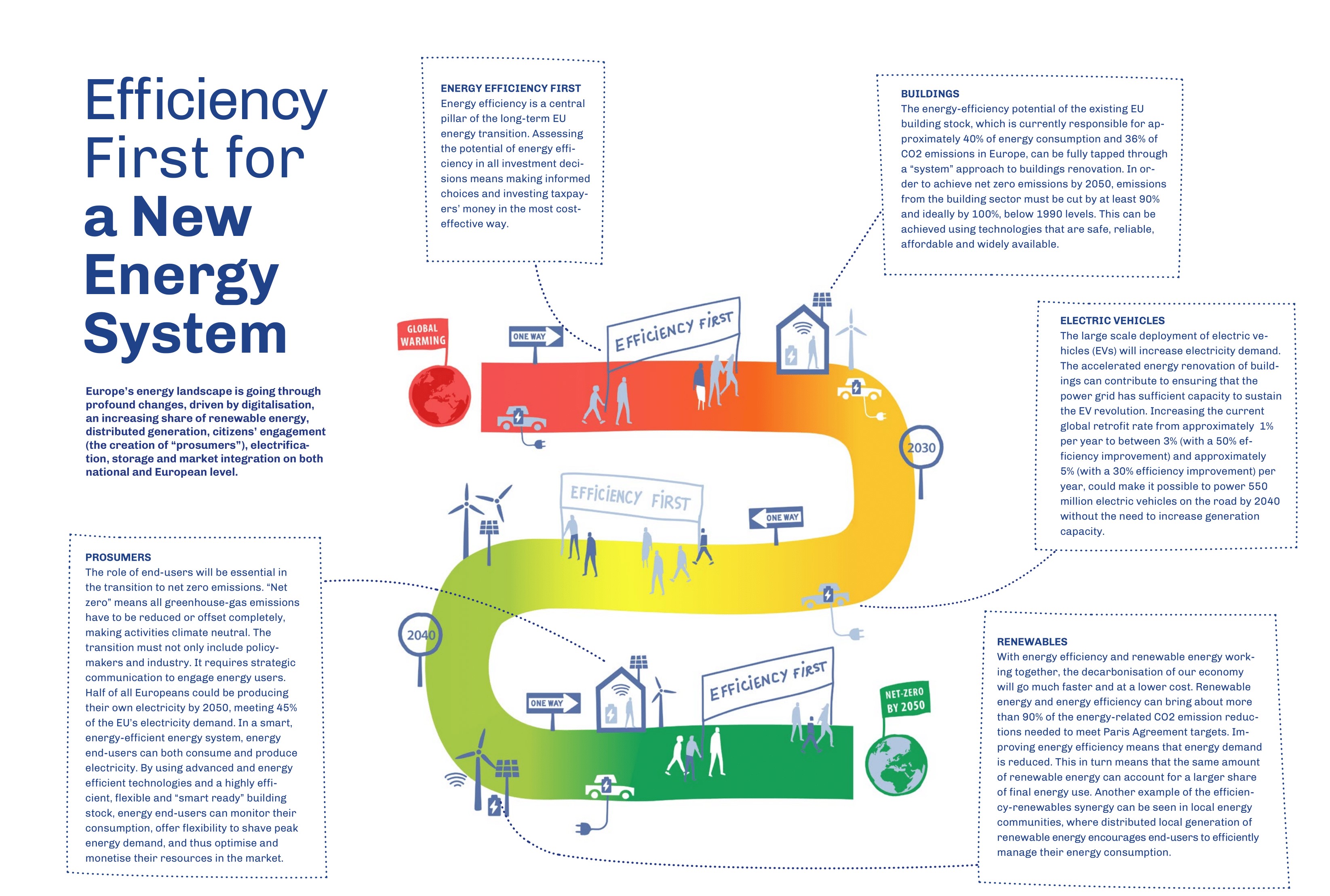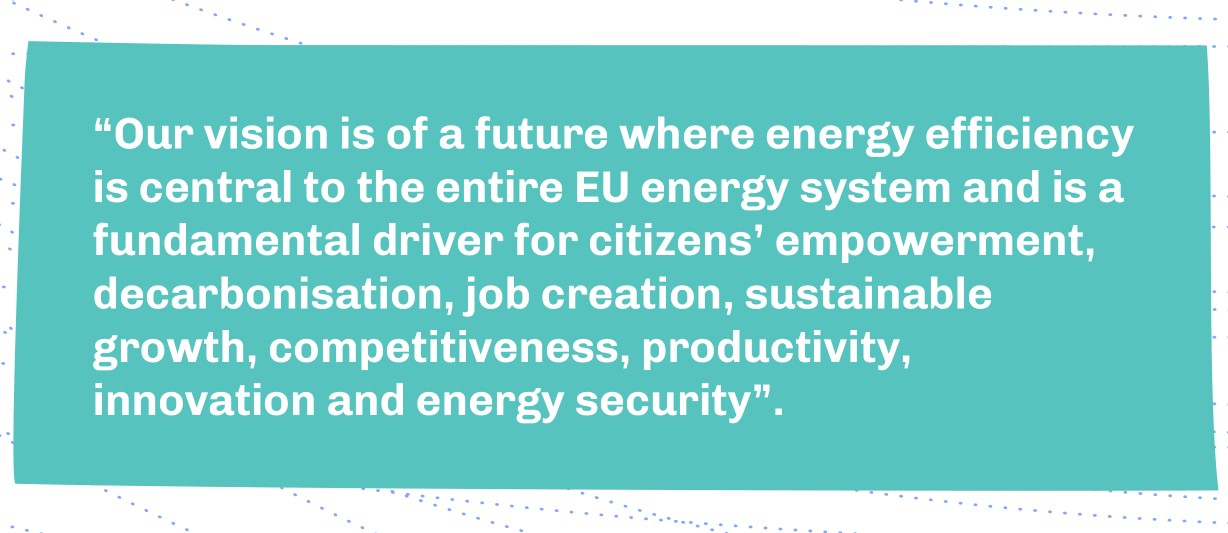At Climate law conference Monica Frassoni highlights importance of energy efficiency to decarbonise Europe
Speech by EU-ASE president Monica Frassoni at High-level public conference on implementing the European Green Deal and Climate Law
Brussels, Tuesday 28 January 2020
“The production and use of energy across economic sectors account for more than 75% of the EU’s greenhouse gas emissions. Energy efficiency (EE) must be prioritised. If we all want to go towards electrification, digitalisation and all the necessary elements that a successful and just transition entails, we need to cut radically our energy demand, by half by 2050 in comparison to 2005, says the Commission.
In other words, we need to fully implement EE FIRST in the decision making and planning of EU energy infrastructure including facilities for generation, transmission, distribution and end-use consumption. This should be addressed in the review of TEN-E, PCI list and in the design of the EU decarbonization package.
We are not yet there I am afraid. EE is still the Cinderella of the energy debate.
Considering the little time we have ahead of us to fully decarbonize and decouple growth from energy consumption, it strikes me how much more attractive seem to be to run incredible risks like investing billions in tax-payers money in not yet fully working technologies like trying to “recycle” gas infrastructures or to capture CO2, instead than rushing to make our houses more comfortable and smart or our industries and transport systems less dependent on the moods of foreign leaders.
Technologies are there, numbers are clear. The building sector impacts 20 million jobs and 92% of companies are SMEs. According to the EC Impact Assessment, for every 1% extra energy savings by 2030: EU gas imports fall by 4%, GHG emissions decrease by 0.7%, Employment increases by 336,000 jobs. How many other sectors have a better business case in terms of job creation?
Let’s face it. If we need to be fully decarbonized by 2050 or earlier, all public efforts must go to energy efficiency and renewables. And no public money should go to activities that go against this landmark objective. Climate law should be very clear to help us avoid doing like Penelope, who undid in the night what she wove in the day.”

